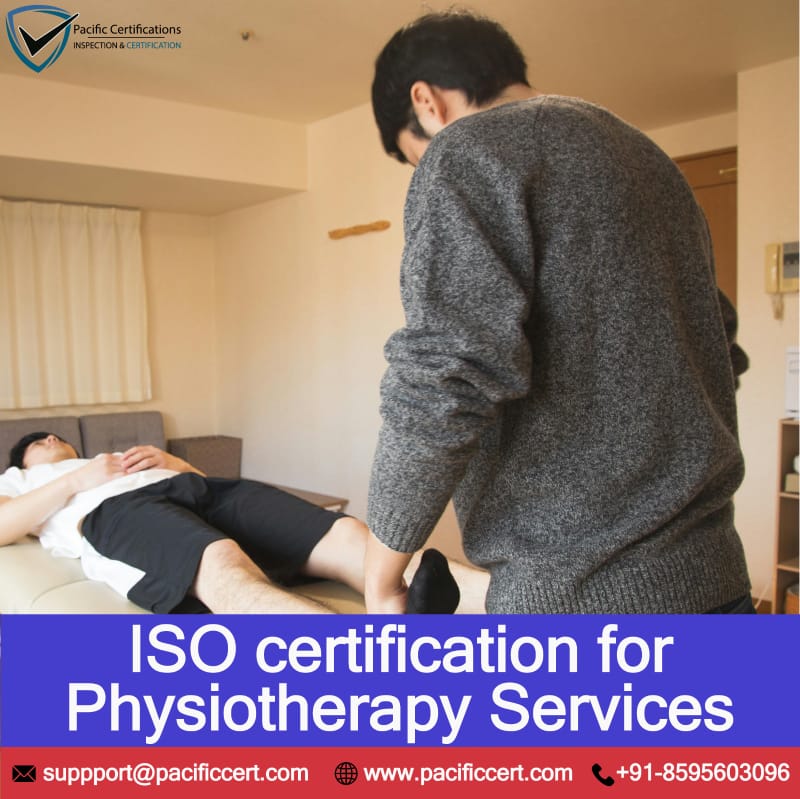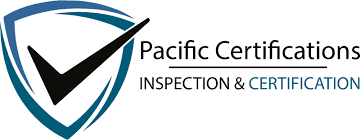ISO Certifications for Physiotherapy Services, Requirements and Benefits

Introduction
Physiotherapy clinics and rehabilitation centres today operate in a healthcare environment shaped by clinical excellence expectations, patient outcome metrics, professional compliance requirements, insurance scrutiny, digital record integrity, and heightened patient-safety and hygiene standards.
Whether serving post-surgical patients, sports rehabilitation clients, neuromuscular conditions, geriatric care, paediatric therapy, or home-based physiotherapy programs, providers must demonstrate structured processes that ensure quality treatment planning, safe equipment usage, trained staff competence, patient data protection, infection-control discipline, and ethical therapeutic practices.
ISO certifications help physiotherapy service providers implement formal management systems that improve patient satisfaction, standardize treatment pathways, prevent clinical and data risks, reduce operational variability, and build institutional trust in a competitive healthcare marketplace.
In physiotherapy, quality is not defined by equipment alone, but by disciplined processes that ensure safe, ethical, and outcomes-driven patient care.
Quick Summary
Physiotherapy providers pursue ISO certifications such as ISO 9001, ISO 45001, ISO/IEC 27001, ISO 14971, ISO 13485 (if equipment-related), and ISO 15189 (for diagnostic support labs) to improve care delivery governance, patient safety, hygiene standards, staff competence, data security, and operational reliability. These standards enhance clinical credibility, support regulatory and insurance compliance, and boost patient trust and service reputation.
Applicable ISO Standards for Physiotherapy Services
Below are the common standards Physiotherapy Services can opt for:
ISO 9001: Quality Management Systems
This standard is fundamental for any service organization aiming to enhance customer satisfaction through consistent processes and continuous improvement. It ensures that physiotherapy services meet client expectations and regulatory requirements.
ISO 14001: Environmental Management Systems
Physiotherapy services that want to enhance their environmental performance, this standard provides essential guidelines. It helps companies minimize their ecological footprint, comply with applicable laws and regulations, and improve environmental management.
ISO 45001: Occupational Health and Safety Management Systems
This standard is crucial for ensuring a safe working environment, which is particularly important in a physically demanding field like physiotherapy. It helps manage risks, prevent work-related injuries, and promote health and safety at work.
ISO 27001: Information Security Management Systems
With the increasing use of digital records and the need for confidentiality in healthcare, ISO 27001 can be especially relevant. This standard helps protect sensitive information, such as patient records, against security breaches.
ISO 13485: Medical Devices - Quality Management Systems
ISO 13485 focuses on compliance with regulatory requirements and the safety and quality of medical devices.
Click here to find out more applicable standards to your industry
If you are looking for ISO Certification for your company, contact us today at [email protected]!
What are the requirements of ISO Certifications for Physiotherapy Service Centers?
Physiotherapy service providers must implement structured quality controls, patient-care pathways, and clinical governance aligned with ISO standards. ISO requirements include establishing documented service protocols, record-keeping discipline, equipment maintenance logs, and safety systems. Below are the key requirements:
Establish scope and service governance across clinical operations, therapy rooms, patient-tracking systems, equipment calibration, and rehabilitation areas.
Define organizational leadership, clinical oversight responsibility, staff qualification requirements, CPD training mandates, and quality supervision roles.
Develop documented patient care procedures including assessment protocols, treatment plans, hygiene controls, appointment workflows, and patient feedback processes.
Carry out risk assessments covering therapeutic techniques, infection-control measures, equipment usage, emergency response, and patient mobility risks.
Implement treatment record systems, consent forms, privacy controls, digital medical record security, and confidentiality protections aligned to ISO/IEC 27001 where applicable.
Maintain equipment maintenance schedules, calibration logs, and safety compliance for rehabilitation tools such as ultrasound machines, electrical stimulators, and traction devices.
Conduct internal audits, corrective-action programs, performance monitoring, and periodic management reviews to demonstrate continual improvement.
Tip: Begin by mapping the patient journey, from initial assessment to discharge follow-ups, and align each step with ISO process controls related to documentation, staff qualifications, equipment safety, hygiene, consent, privacy, and outcome reviews.
What are the benefits of ISO Certifications for Physiotherapy Services?
ISO certifications provide numerous benefits; below are the key benefits physiotherapy providers gain through systematic compliance:
Enhanced patient safety, treatment consistency, and hygiene standards reduce risk and improve clinical credibility.
Improved documentation, treatment planning discipline, and audit trails strengthen patient-outcome reliability and transparency.
Structured calibration, equipment maintenance, and safety controls minimize clinical risks and enhance therapeutic effectiveness.
Better data protection procedures protect patient records, digital case files, and consent documentation.
Stronger workplace safety culture and ergonomic practices reduce staff injuries and professional liability.
Increased trust among referring surgeons, hospitals, insurers, corporates, and sports teams enhances market positioning and long-term contracts.
Demand for physiotherapy services is increasing significantly due to ageing populations, sports injuries, chronic pain conditions, and post-operative rehabilitation. The global services market is projected to exceed USD 70 billion by 2030, driven by neurological rehabilitation, musculoskeletal disorders, and fitness recoveries.
Tele-physiotherapy adoption has grown by more than 300 percent since 2020, with digital rehabilitation platforms requiring stronger ISO/IEC 27001-aligned data controls. Insurance companies increasingly require accredited quality systems as part of empanelment, and nearly 58 percent of physiotherapy clinics in developed markets now hold quality or data-security certifications.
Regulatory tightening around healthcare documentation, hygiene protocols, and patient-record security also accelerates the adoption of ISO frameworks, making structured compliance a commercial necessity rather than an optional initiative.
How Pacific Certifications Can Help?
Pacific Certifications provides independent, accredited audit and certification services that evaluate whether physiotherapy facilities meet the requirements of relevant ISO standards. Certification demonstrates that the physiotherapy center has structured patient-care processes, safety frameworks, data protection controls, and performance-monitoring systems aligned with international best practices. Certification signals clinical reliability, strengthens insurance and referral credentials, and enhances patient trust.
Pacific Certifications supports physiotherapy providers through:
Conducting accredited audits for ISO 9001, ISO 45001, ISO/IEC 27001, and related healthcare standards
Evaluating evidence of clinical governance, hygiene protocols, therapeutic procedure standardization, and patient safety controls
Assessing digital record-keeping and privacy mechanisms for compliance with ISO data-protection norms
Reviewing calibration logs, equipment safety controls, and risk mitigation processes
Providing impartial certification decisions based on international accreditation requirements
Contact Us
If you need support with ISO certification for your physiotherapy business, contact us at [email protected] or +91-8595603096
Read more: Pacific Blogs

